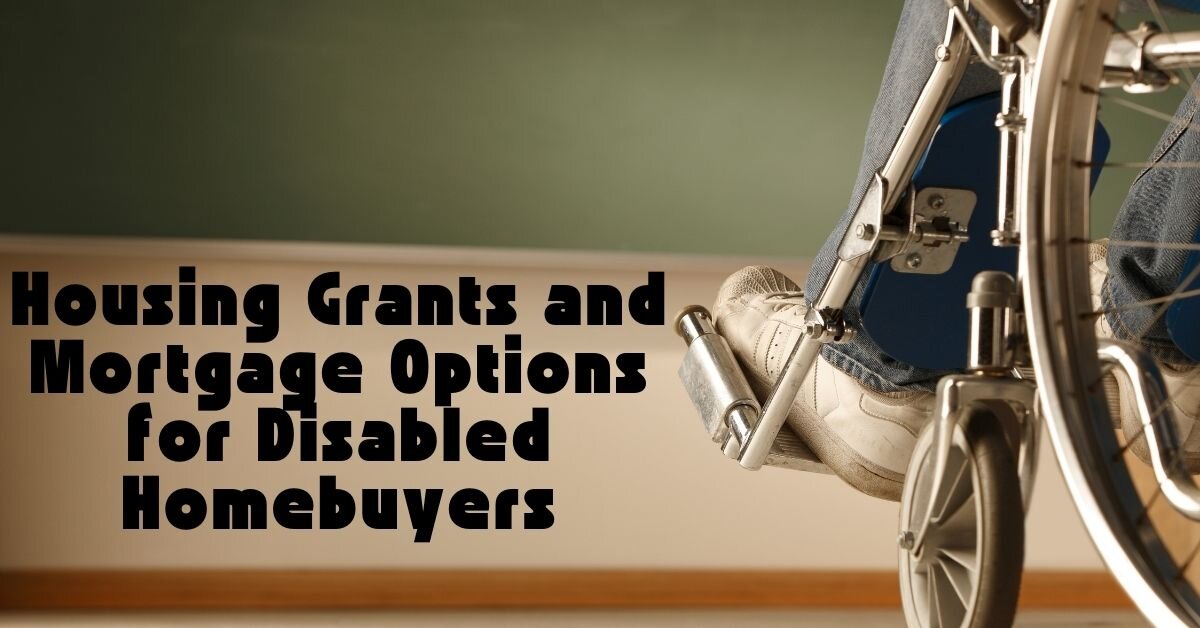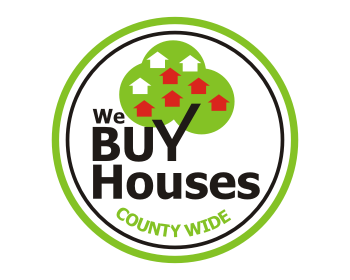
Everyone deserves a safe and comfortable home, but for disabled homebuyers, the process of buying a house can feel overwhelming. Thankfully, there are plenty of grants and mortgage programs for disabled homebuyers that make owning a home possible. These programs are designed to remove barriers, like financial challenges and accessibility concerns. If you’re struggling to find the right resources or don’t know where to start, understanding these options is key.
- Disabled homebuyers have access to tailored grants and programs like FHA, VA, USDA, and Fannie Mae HomeReady loans, designed to address financial and accessibility challenges.
- Programs such as HUD Housing Choice Vouchers, VA Adaptation Grants, and USDA Section 504 Grants offer financial aid for down payments, repairs, and modifications..
- Eligibility for housing assistance for people with disabilities depends on meeting general requirements, income limits, disability verification, and property standards, ensuring resources reach those in need.
- Practical tips include gathering documentation, exploring grants for first-time disabled homebuyers, consulting housing counselors, and leveraging programs that simplify the home-buying process.
The Importance of Housing Assistance for People with Disabilities
Let’s be honest—buying a home isn’t easy for anyone, and it’s even tougher for people with disabilities. Fixed incomes, high home prices, and the need for accessibility features can make the process feel impossible. This is where housing assistance for people with disabilities steps in. It’s not just about money; it’s about creating stability, independence, and security. These programs work to level the playing field, so disabled individuals don’t have to give up on their dream of owning a home.
Key Mortgage Programs for Disabled Homebuyers
Getting a mortgage can be tough when you’re juggling fixed income or credit issues, but there are options made specifically for you. Specialized mortgage programs for disabled individuals can help by offering lower down payments, accepting disability income, and even lowering interest rates. Programs like FHA, VA, USDA, and Fannie Mae HomeReady loans are designed to meet unique needs and make the dream of homeownership real for more people.
FHA Loans
FHA loans are backed by the Federal Housing Administration and are a great choice for buyers with lower credit scores or smaller savings. The down payment can be as low as 3.5%, which makes it easier to afford. They also accept SSDI and SSI as qualifying income, so even if you’re on a fixed income, you could still qualify. Plus, they offer rehabilitation loans to cover accessibility upgrades like ramps or widened doorways. It’s like a one-stop solution.
VA Loans for Disabled Veterans
For veterans, VA loans are probably one of the best options out there. No down payment? Check. Lower interest rates? Check. If you have a service-connected disability, you don’t even have to pay the funding fees, which saves you money upfront. Property tax reductions and other benefits can also help make owning a home affordable. These loans make it easier for veterans with disabilities to find a place they can call their own.
USDA Loans
USDA loans, supported by the U.S. Department of Agriculture, are made for people in rural or suburban areas. The best part? No down payment is required. Interest rates are often lower too. If you qualify for the USDA Direct Loan program, the benefits are even better, like longer repayment terms and subsidies for your payments. You can also use these loans to build or renovate a house to meet accessibility needs. This program is a hidden gem for many.
Fannie Mae HomeReady Loans
Fannie Mae HomeReady loans are ideal for moderate-income buyers. You only need a 3% down payment, and the program accepts non-traditional income sources like SSDI or SSI, so it’s a solid option for those with fixed incomes. Another perk? You can get help with the down payment from family or housing grants, and you can even include a co-borrower who doesn’t live with you. It’s flexible, which makes it great for many situations.
Homeownership Grants for Disabled Homebuyers

Grants are a game-changer, especially when money is tight. Homeownership grants for disabled buyers can cover things like down payments, closing costs, or even home modifications. Programs like HUD’s Housing Choice Voucher, VA Adaptation Grants, and USDA Section 504 Grants are tailored to make homeownership more affordable. If you’re trying to stretch every dollar, these grants can make all the difference.
HUD Housing Choice Vouchers
HUD Housing Choice Vouchers are a lifeline for low-income families and people with disabilities. They help you move from renting to owning a home by covering a portion of your mortgage payments, taxes, and insurance. If you’re low on funds but ready to settle into a stable, long-term housing situation, this program could be exactly what you need. It’s like having a partner in your corner.
VA Adaptation Grants
VA Adaptation Grants are specifically for veterans with service-connected disabilities. They offer two main options: the Specially Adapted Housing Grant (SAH) for major modifications like ramps and wide doorways, and the Special Home Adaptation Grant (SHA) for smaller changes to improve accessibility. These grants help veterans live comfortably in homes that fit their needs, giving them the freedom to enjoy their space without limitations.
USDA Section 504 Grants
The USDA Section 504 Grant program is designed for very low-income homeowners, including those with disabilities. These grants can be used for critical repairs and renovations to make a home safer and more accessible. Whether it’s fixing outdated wiring, repairing a leaky roof, or adding accessibility features, these funds can make your home livable again. For many, it’s the difference between struggling and thriving.
Affordable Housing Options for Disabled Homebuyers

Affordable housing shouldn’t be a luxury—it’s a necessity. Organizations like Habitat for Humanity and Rebuilding Together are stepping up to help by building or modifying homes to meet ADA standards. If buying isn’t an option, social security disability housing assistance and local housing authorities offer transitional and rental housing options. These programs ensure that everyone, no matter their financial situation, can have a roof over their head.
Eligibility Criteria
Understanding the eligibility criteria is essential when applying for housing assistance for people with disabilities. These requirements ensure that resources are distributed to those who need them the most. Below are the key areas to consider.
General Requirements
Applicants must meet specific requirements depending on the program, including credit score, down payment ability, and debt-to-income ratio. Programs like FHA loans are more lenient, allowing lower credit scores and smaller down payments. Additionally, applicants must occupy the home as their primary residence. Consulting with program representatives or housing counselors can clarify these guidelines.
Income Limits
Most programs have income limits based on the area’s median income to ensure assistance reaches those in financial need. For instance, USDA loans often require income to fall below a set threshold. Disability benefits like SSDI or SSI are typically included as qualifying income. Always verify income limits with local or federal housing agencies.
Status Verification of Disability
Verification of disability status is required for many programs and grants. This often involves submitting documentation such as SSDI or SSI award letters, medical certifications, or benefit statements. Additionally, some programs may require proof that benefits will continue for at least three years. These documents demonstrate eligibility and help secure financial assistance.
Property Requirements
Properties must meet specific criteria to qualify for housing assistance or grants. These include passing safety inspections, meeting accessibility standards, and aligning with program guidelines like size and location limits. Some programs may require properties to be in rural areas, while others focus on renovations to improve accessibility. Always check individual program requirements.
Practical Tips for Navigating Mortgage Applications
Applying for a mortgage can seem overwhelming, but with preparation, the process becomes much easier. For disabled homebuyers, organization and knowledge are key to navigating the unique challenges of securing a home loan.
- Start by gathering all required documents. Lenders typically ask for proof of income, such as SSDI or SSI award letters, bank statements, tax returns, and any other documentation showing financial stability. Having these on hand can significantly speed up the process and reduce stress.
- Next, research housing assistance for people with disabilities to identify programs tailored to your situation. Federal, state, and nonprofit organizations offer various resources, such as grants and specialized loans, to help disabled individuals buy homes. Understanding your options ensures that you choose the program that best fits your needs.
- Consider consulting with a housing counselor or mortgage broker. These experts can help you understand eligibility requirements, loan terms, and available financial assistance. They can also guide you in selecting a program and preparing your application.
- Lastly, don’t hesitate to ask questions or seek clarification. The more informed you are, the better equipped you’ll be to make decisions. By staying organized, leveraging available resources, and seeking guidance, you can confidently navigate the mortgage application process.
Conclusion
Owning a home can feel like a distant dream for many disabled homebuyers, but with the right resources, it’s absolutely achievable. By leveraging grants for first-time disabled homebuyers and exploring housing support programs for disabilities, you can overcome financial and accessibility challenges. These programs provide not just funding but also guidance to help you navigate the process with confidence. Take the first step today—research the programs mentioned here and start your journey to stable, accessible, and affordable homeownership. For more personalized assistance, explore resources about mortgage options for disabled homebuyers check out our blog page.

Kevin J Roberts
Licensed Real Estate Broker & Investor
Kevin Roberts is a seasoned real estate expert with 40+ years of experience, excelling
in property investments, sales, and client satisfaction in the State of California.
FAQs
1. Can I buy a house with disability income?
Yes, disability income such as SSDI and SSI is accepted by many lenders when applying for disability-friendly mortgage options. You’ll need to provide documentation showing your benefits and income stability. These programs ensure that fixed incomes don’t prevent you from owning a home.
2. What are the best grants for disabled homebuyers?
Some of the best grants include HUD Housing Choice Voucher, VA Adaptation Grants, and USDA Section 504 Grants. These grants assist with down payments, closing costs, or home modifications. They’re specifically designed to make homeownership more affordable for disabled buyers.
3. Are there housing programs for veterans with disabilities?
Yes, veterans with disabilities can access VA loans and VA Adaptation Grants. These programs provide financial aid, property tax reductions, and accessibility modifications. They are tailored to ensure veterans can live comfortably and affordably in their homes.
4. What documents are needed for a mortgage application?
To apply for a mortgage, you’ll need proof of disability income (e.g., SSDI or SSI award letters), tax returns, and bank statements. These documents help lenders assess your ability to make payments. Additional paperwork may be required for specific grants or loan programs.
5. How do I qualify for accessible housing grants?
To qualify, you’ll need to provide proof of disability and income documents showing financial need. Some grants may also require participation in counseling or homeownership programs. Check with local and federal agencies for specific requirements tailored to your situation.
Resources:
Business Insider: https://www.businessinsider.com/personal-finance/mortgages/disability-home-loans-grants
The Mortgage Report: https://themortgagereports.com/31507/best-programs-for-getting-a-mortgage-with-a-disability
Fast Expert: https://www.fastexpert.com/blog/grants-home-loans-for-disabled-homebuyers/

